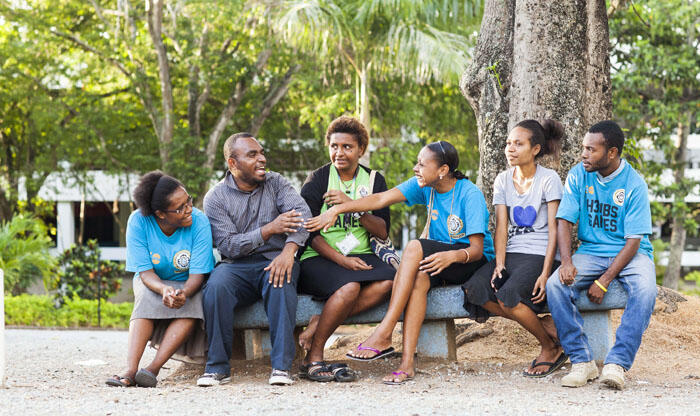AS we embark upon the 2030 Development Agenda, one in three women worldwide have experienced some form of physical or sexual violence, usually perpetrated by someone she knows.
Protecting women and girls from violence and harmful practices is not only a moral and human rights imperative, it is also critical to the economic and social progress of nations. For these reasons, we should all think deeply about and act decisively to end this societal scourge.
Gender-based violence, in particular violence against women and girls, has to be recognised as the development-crippling agent that it is.
Last Friday (November 25) we observed International Day for the Elimination of Violence against Women (November 25), consider issues such as female genital mutilation, which affect an estimated 200 million women and girls, or child marriage, with one in three girls in developing countries being married off before the age of 18.
Agenda 2030 and the United Nations Sustainable Development Goals (SDGs) aim for inclusive, equitable growth that leaves no one behind.
Millions of women and girls, however, are being held back by violence that prevents the realisation of their full potential.
It is that diminished potential which in turn hamper progress towards the SDGs.
"Underlying the scourge of violence and harmful practices against women is gender inequality," UNFPA executive director Dr Babatunde Osotimehin said in a statement marking International Day for the Elimination of Violence against Women (November 25).
Gender equality is a prerequisite for the full realisation of women's and girls' human rights and for the advancement and well-being of individuals, families, communities and countries.
"UNFPA, the United Nations Population Fund, works to eliminate gender-based violence in countries around the world, many of which are affected by conflict or natural disasters, and where the risk of violence against women and girls is high.
"Last year alone, the fund invested more than $93 million in the prevention of and response to gender-based violence and harmful practices in developing countries and in humanitarian crisis situations."
UNFPA emphasised last week the fact that discrimination against women and girls remain pervasive in every society and is one of our greatest obstacles to socioeconomic development.
"The unaddressed needs are immense," Dr Osotimehin said.
"That is why, on this day (International Day for the Elimination of Violence against Women (November 25), we at UNFPA renew our commitment to do everything in our power to put an end to violence against women and girls, and we call on all of our partners to join us in committing to make violence against women and girls a thing of the past."
Commitments for progress
Pacific nations have made commitments to international and regional development actions which bind them as duty bearers to make real for right-holders intentions articulated in such documents, albeit the non-legal binding nature of most of them.
Recently for example, Asia Pacific parliamentarians including Fiji representatives reaffirmed the critical role they played as legislators, in the stewardship of the environment through sustainable development practices at the 18th Asia Pacific Parliamentarians' Conference on Environment and Development (APPCED).
The Seoul Declaration: UN-SDGs and International Development recognises links between climate change, natural disasters and humanitarian emergencies, and the inevitable interactions between environment protection, population dynamics, development and the objectives of APPCED.
Population dynamics refer to size and age of populations, and the biological and environmental processes which drive them for example birth and/or death rates. The UNFPA is the United Nations agency which works around issues related to population and development such as reproductive, maternal, newborn and adolescent health, apart from data collection and analyses.
Speaking to the participating parliamentarians, the UNFPA Asia and the Pacific regional office deputy regional director Lubna Baqi appealed to parliamentarians' responsibility as the peoples' representatives.
"Your role is truly fundamental and essential. A key responsibility of parliaments is to approve budgets and fiscal policies; you can ensure sufficient resources for universal access to sexual and reproductive health services, including for the most vulnerable and disadvantaged groups," Ms Baqi said.
"You can legislate to expand access to health and education, ensure gender equality, to eliminate all types of exclusion, inequality and discrimination. Parliamentarians occupy a very special position as direct representatives of the people. We hope that you can be a voice of those who are the most excluded and marginalised people of the Asia and Pacific region."
Equality - a precondition for development
Gender-based violence, in particular violence against women and girls, has to be recognised as the development-crippling agent that it is. Even when communities are reeling from a humanitarian or fragile situation, gender equality dynamics dictate how well a nation responds.
The APPCED participants called for governments at "national and local levels to promote and support gender-sensitive disaster risk-reduction actions including universal access to sexual and reproductive healthcare services and prevention and response to gender-based violence".
UNFPA challenges us all on International Day for the Elimination of Violence against Women to make violence against women history, acknowledging the role gender equality plays.
We leave you with a gem aptly articulated by Dr Osotimehin earlier this week in China: "We shouldn't promote growth without the other half; equality is a precondition for development."


